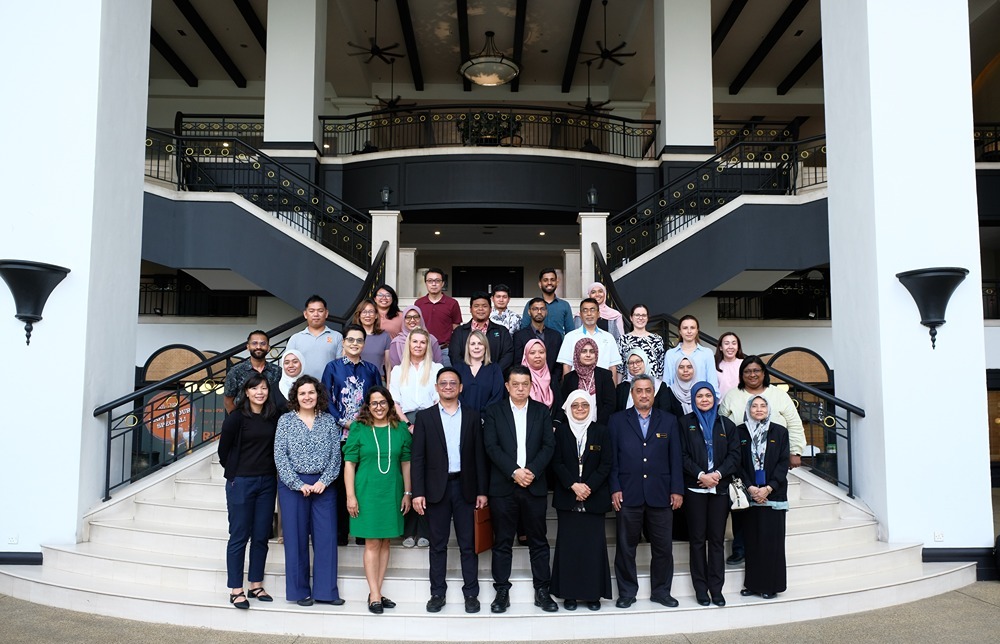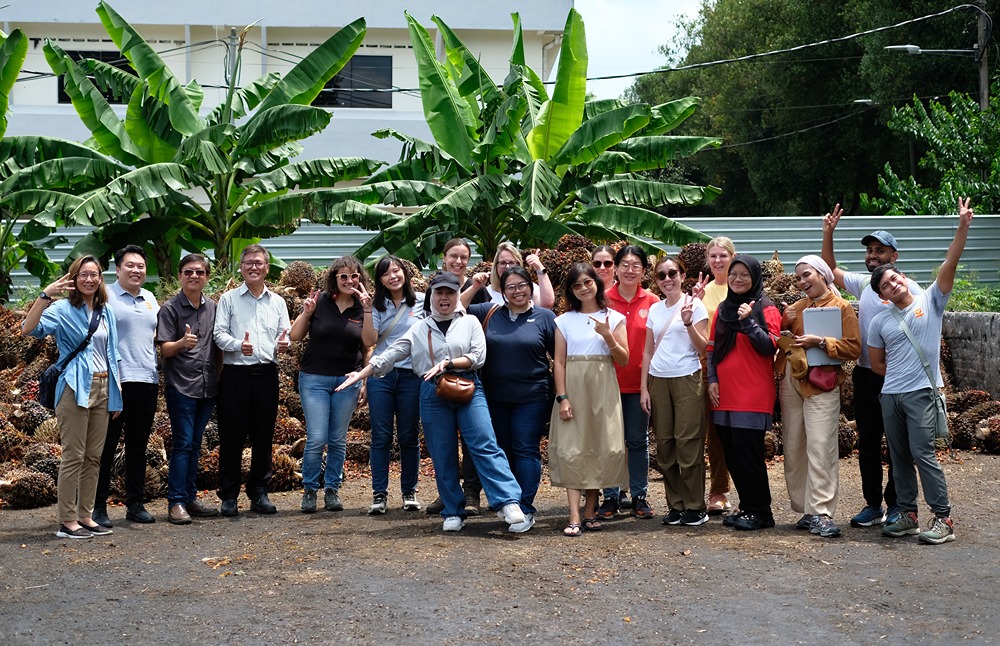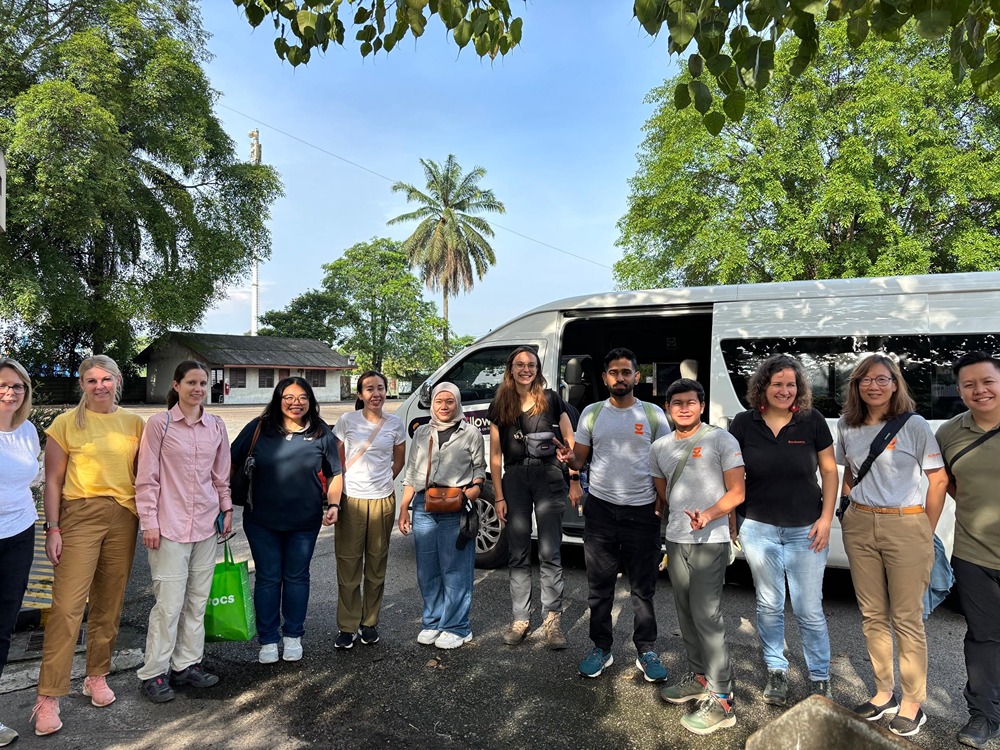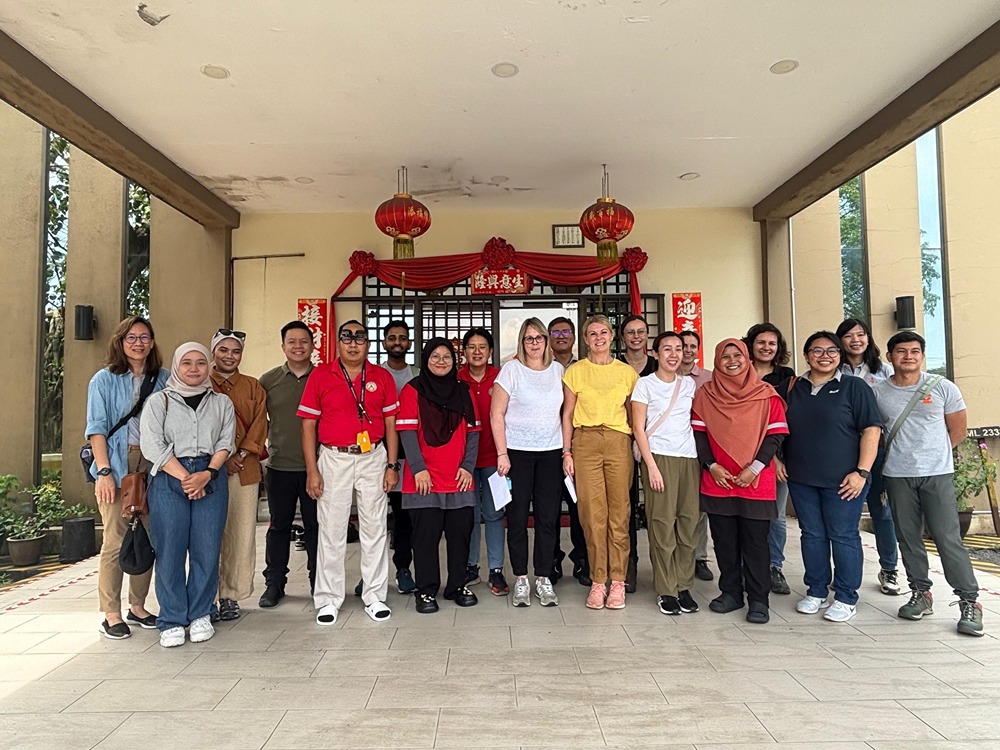On the ground in Malaysia's palm oil industry

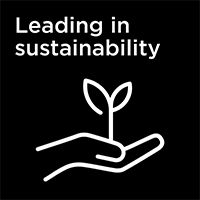
Delivering on Clariant's purpose »Greater chemistry - between people and planet.«
This story is an example of how Clariant delivers on its purpose-led strategy.
At Clariant, we mainly use oleochemicals sourced from palm kernel oil and palm oil to produce our surfactants, emulsifiers, and preservatives. Prominent product examples are Nipaguard SCE range (including the recently launched Nipaguard™ SCE Vita) and Velsan™ CGE.
Our goal is to source these ingredients sustainably – free from deforestation and exploitation – while ensuring high transparency levels and supporting small farmers.
To achieve this, we work closely with suppliers and customers to build a sustainable palm oil supply chain and prepare for future regulations such as the EU Deforestation Regulation (EUDR).
This commitment aligns perfectly with our Innovation Arena, “Health- and sustainability-conscious consumers and brands.” Since early 2024, Clariant’s Business Unit Care Chemicals has been supporting three landscape projects in Malaysia and Indonesia. Convened by Earthworm Foundation, these collective initiatives are supported by several companies and focus on promoting sustainable palm oil production and environmental conservation.

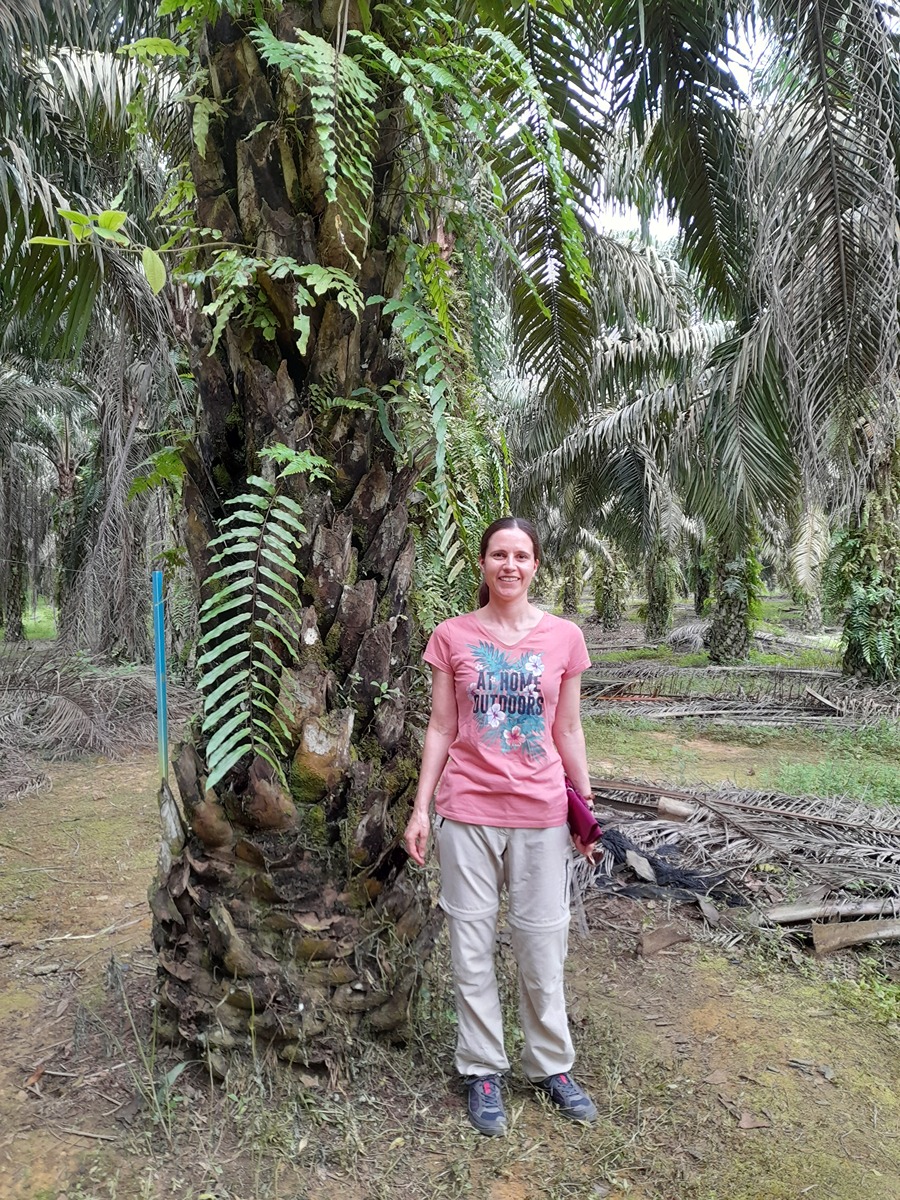
Rabea Dillmann, our Sustainability Audit Specialist, recently visited one of these projects in Malaysia. The trip provided valuable insights into the palm oil industry and how Clariant’s commitment is making a real impact on the ground.
A journey through the supply chain
Rabea's itinerary included visits to a palm oil mill, a dealer's operation, a palm oil plantation, and a local smallholder community. These stops gave her a comprehensive view of the supply chain, shedding light on the roles and challenges faced by different stakeholders. One of the most revealing aspects of the trip was Rabea's discovery regarding supply chain transparency. »Some palm dealers expressed discomfort about sharing their supplier and customer information,« she reported. »They fear losing their position if mills start working directly with farmers.« This insight helps explain why achieving full transparency in our supply chain – especially down to the plantation level – is such a complex challenge. These efforts are also incredibly valuable as they foster trust and enable meaningful dialogue among diverse stakeholders.
Earthworm: our boots on the ground
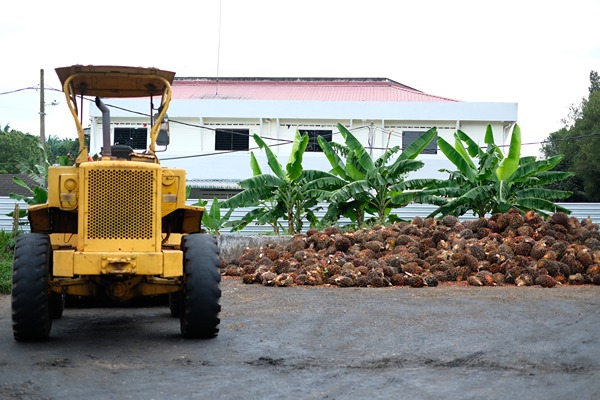
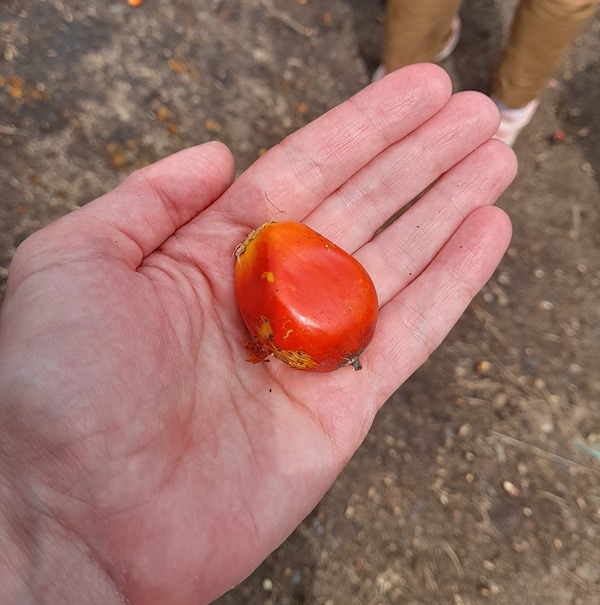
Rabea highlighted how important Earthworm Foundation is as a trusted partner. Their local teams play a key role by working directly with people in the area – farmers, community members, and local authorities. Because they understand the local culture, speak the language, and have extensive experience in the palm oil industry, they can build strong relationships and have open, honest conversations.
Smallholders: allies in sustainability
Contrary to some preconceptions, Rabea was impressed by the local farmers' attitudes, especially when it comes to smallholders. »The Malaysian farmers I met showed a surprising level of understanding and openness toward our high sustainability standards,« Rabea noted. She observed that while farmers generally respect their environment, they also seek mutual benefits in sustainability partnerships.
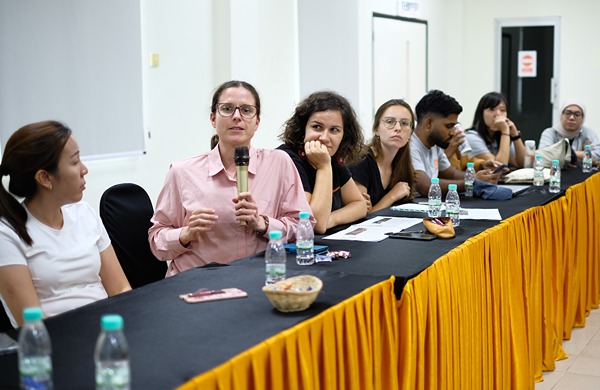

The visit highlighted practical issues faced by farmers, including negative human-wildlife conflicts. »Some farmers deal with security risks from elephants,« Rabea explained. »Elephants enter plantations in herds, sometimes up to 30 individuals capable of consuming young palm trees by eating the core of the trees. This causes not only extensive economic damage but poses also a danger to life for farmers.« In a human-elephant coexistence program, Earthworm collaborates with smallholder communities and other stakeholders under a community-led, multi-stakeholder and landscape-level approach. This approach enables all parties to champion Asian elephant conservation, community and stakeholder safety, and oil production.
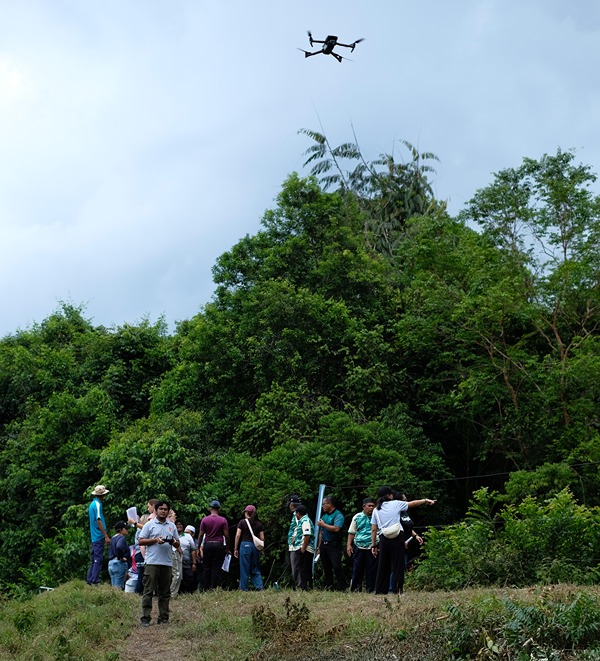
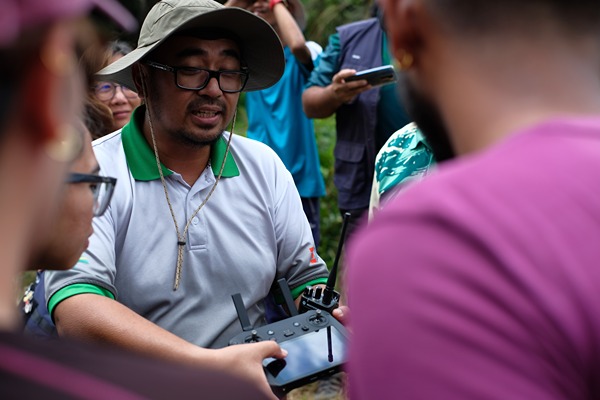
One of the main ideas is to use drones to monitor elephant movements and predict potential conflicts before they happen. By tracking elephant herds from the air, drones can provide real-time data to conservationists and farmers, allowing them to take preventive actions, like guiding elephants away from crop fields or settlements. Drones can also be used to create "safe zones" for elephants and to deploy early warning systems, alerting local communities when elephants are nearby, thus helping avoid confrontations.
Thanks to these efforts, elephant-related damage was reduced by 80%, fostering a more peaceful cohabitation between humans and elephants. This collaboration demonstrates the power of local initiatives and the positive impact they can have on smallholder communities, promoting both wildlife conservation and agricultural sustainability.
Compliance: a paper tiger?
An important observation was the disconnection between practice and documentation. While many small farmers employ sustainable methods, they often struggle with providing the legal evidence required by standards like the EU Deforestation Regulation (EUDR).
There are examples of families who cultivate their farm for many generations, but they do not have legal proof of land ownership. Many smallholders are also facing challenges in meeting the requirements of voluntary certification schemes like RSPO (Roundtable on Sustainable Palm Oil). High certification and maintenance costs are an additional burden.
To meet the growing demand for sustainable palm oil, the Malaysian government launched the Malaysian Sustainable Palm Oil (MSPO) Certification a few years ago. This mandatory certification scheme is specifically designed to align with local realities, aiming to raise the sustainability standards across various stages of the palm oil supply chain. On January 1, 2025, a revised version of the certification (MSPO 2.0) featuring higher sustainability standards, has come into effect.
The successful implementation and ongoing development of MSPO could be crucial for European producers striving to meet their sustainability targets. In this effort, Earthworm Foundation is actively collaborating with the Malaysian Palm Oil Board (MPOB), the governmental agency overseeing the palm oil industry in Malaysia.
During the trip, participants had a unique opportunity to engage directly with MPOB Director & Senior Management at the annual stakeholder dialogue in Bangi, Selangor, where they discussed market needs and exchanged valuable perspectives.

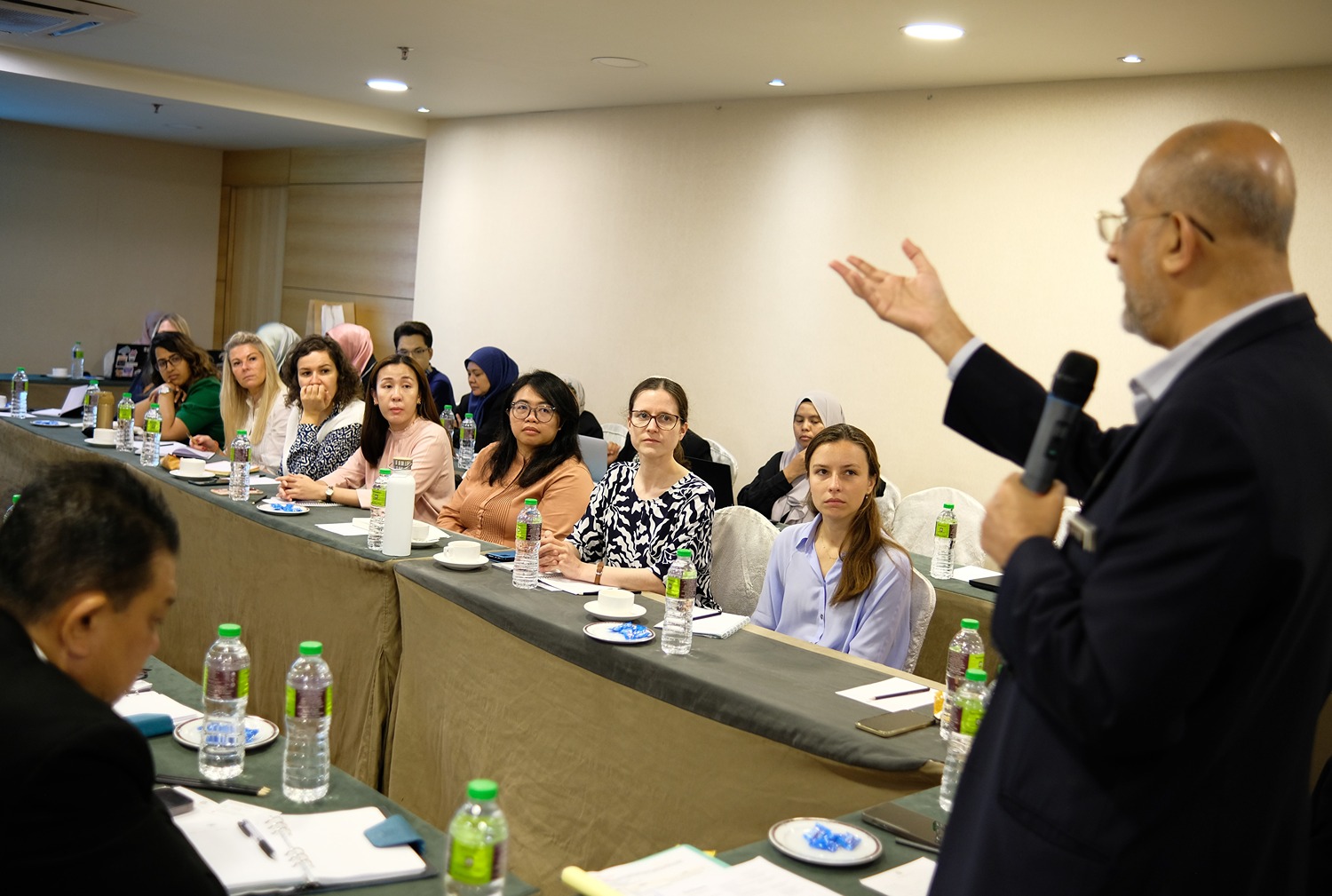
Palm oil: Malaysia's green gold
The trip reinforced the economic importance of palm farming in Malaysia. Rabea described seeing "farm after farm" across Peninsular Malaysia, emphasizing the scale of the industry and its central role in the local economy. She also learned that the first oil palm plants in Malaysia were introduced from Africa by Europeans, adding a colonial twist to the industry's origins.
This field visit provided invaluable insights that will enhance Clariant's ongoing efforts to source palm oil sustainably. The program perfectly aligns with Clariant’s palm sustainability commitments and serves as a powerful example of how complex challenges can be effectively tackled through collaboration and dedicated on-the-ground action. By working together, we can continue to drive meaningful progress toward a more sustainable palm oil industry – one that ensures a brighter future for both our people and our planet. This is #GreaterChemistry.
Photo credit: Bejay Yapp/Earthworm Foundation
